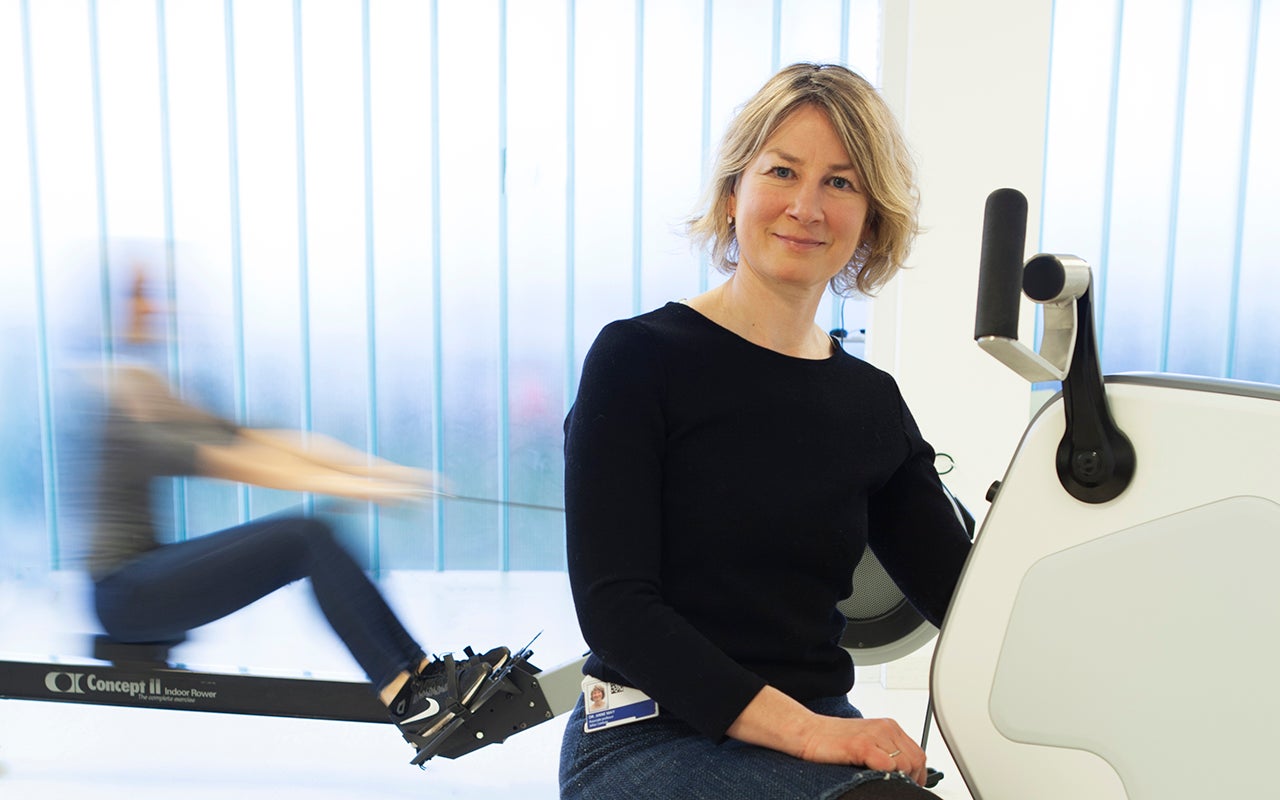Prof. Anne May from UMC Utrecht and her colleagues have received a 6 million Horizon Europe grant to develop and evaluate a personalized and live-remote exercise program for cancer patients. With this new intervention, they aim to resolve current problems in the implementation of exercise programs. This news item describes their research plans.
Many people who completed their cancer treatment still suffer from long-term side effects, such as fatigue, low physical fitness, neuropathy, and anxiety and depressive symptoms. These side effects can persist for years and can be quite detrimental, impacting the quality of life, functioning and productivity of cancer survivors. They therefore rely on supportive care services to manage the symptom load of their long-term side effects.
Exercise interventions to reduce cancer side effects
Exercise interventions have proven to be uniquely successful in reducing the symptom burden of both physical and psychological long-term side effects and are currently implemented in existing supportive care strategies.
However, practical implementation of these exercise programs has also exposed some shortcomings. “The use of exercise interventions in supportive cancer care is still limited”, according to Anne May. She is a professor in clinical epidemiology of cancer survivorship at UMC Utrecht. “In Europe, there is both a lack in availability and in accessibility. Time and travels constraints patients and survivors taking part in exercise programs. Moreover, we signal an overall low awareness of these programs, also from healthcare providers.”
New personalized and live-remote exercise program
The PREFERABLE-II consortium, as the project is dubbed, aims to tackle these hurdles. It receives a €6.011.451,25 grant for a 5-year project from Horizon Europe. PREFERABLE-II stands for: Personalised Exercise-Oncology for improvement of supportive care: a super umbrella trial to demonstrate the (cost)effectiveness of live-remote exercise in cancer survivors.
With colleagues from the Netherlands Cancer Institute and from renowned research institutes in Germany, Sweden, Spain, Portugal, and Australia, Anne May will develop a novel exercise intervention that is live-remote and personalized to the wishes and needs of the patient. The European Cancer Patient Coalition will provide patient input in the scientific studies and for dissemination of the results. Julius Clinical Research BV will be monitoring the trial.
Personalized exercise program based on the survivor’s side effects
Existing exercise interventions are designed in a one-size fits all fashion and leave only limited room for personalization. “We’re going to design an exercise program that improves overall quality of life and one out of four major long-term side effects: fatigue, low physical fitness, neuropathy or psychological symptoms”, Anne explains. “Hence, we can personalize the program to the survivor’s main side effect. All participants will receive a base exercise module (2 weeks) supplemented with a specific module (1 week). For example, people suffering from neuropathy will receive more balancing exercises, while for those enduring chronic fatigue a yoga session will be added.
Live-remote training program
Another more practical problem with existing exercise interventions is that they are most effective when offered on-site at a training facility, under the supervision of an exercise specialist. Unsupervised home-based programs are less effective, most likely because the required training intensities are not reached. The need to travel to a training facility creates hurdles for patients and survivors that lower participation, like time constraints due to job or care tasks, too much travel time or travel dependencies.
Anne: “This is why our exercise intervention will be implemented at the homes of patients and survivors. It works with live-remote supervision from a national broadcast center ensuring direct supervision via video connection of specialized exercise trainers and appropriate training intensities. For this we have built on recent experiences and insights gleaned during the COVID-19 pandemic and supported by tele-communication systems.”
Available to all cancer survivors
Most research thus far is aimed on a specific group of cancer patients, mainly patients with breast cancer. “Our exercise intervention can and will be made available to all cancer survivors”, says Anne. As such, our project contributes to improving the quality of life of those affected by cancer, by lowering the burden of side effects, while also improving availability, access, and awareness off exercise-based supportive care interventions.”
In addition to evaluating the intervention, PREFERABLE-II will also work on standards for patient-centered communication including shared decision-making regarding exercise, and on practical, professional, and legal recommendations for offering live-remote exercise for patients with cancer in Europe.

